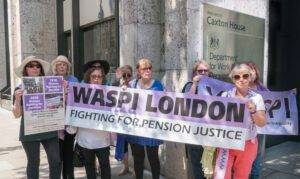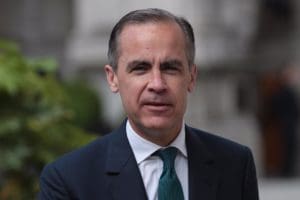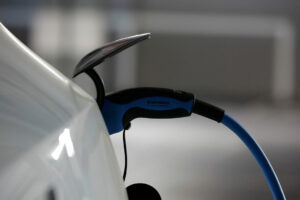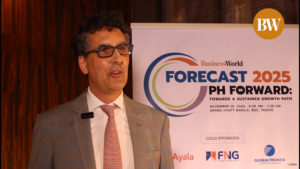The Supreme Court (SC) has spoken: as penned by Associate Judge Rodil Zalameda on July 30, 2024 on the petition of the Iloilo Electric Cooperative (ILECO, consisting of IEC I, II, and III) challenging the validity of Republic Act 11919, which expanded the franchise of another electricity provider, More Electric Power Corp. (MORE), to areas within the ILECO’s franchise to include 15 municipalities and one city previously within ILECO’s franchise area. ILECO filed a petition before the SC for a certiorari and a prohibition with a prayer for the issuance of a writ of preliminary injunction to invalidate Section 1 of RA 11918 for violating their rights to an exclusive franchise, due process, the right to non-impairment of contracts, and equal protection. The SC denied the petition (see also Boo Chanco: “No More Exclusive Franchises?” The Philippine Star, Jan. 27).
In dismissing the petition, the SC ruled that Section II, Article XII of the 1987 Constitution and Article XII of the 1973 Constitution both prohibit exclusive franchises.
Section 11, Article XII, 1987 Constitution states: “Neither shall any such franchise or right be granted except under the condition that it shall be subject to amendment, alteration or repeal by the Congress when the common good so requires.” Moreover, franchises are subject to amendment, alteration or repeal by the Congress when the common good so requires.”
Section 5, Article XIV of the 1973 Constitution: “… nor shall such franchise, certificate or authorization be exclusive in character or for longer than period of 50 years.”
Thus, it must yield to serve the common good as determined by Congress. Who determines the common good? It is Congress. Congress, in enacting RA 11918, determined that expanding MORE’s franchise would promote healthy competition and would benefit consumers without waiting for 2029, 2039, and 2053, the expiry dates for the ILECO franchises. The Court added that contract rights must give way to the broader authority of the State’s police power when exercised for the general welfare.
In November 2018, former President Rodrigo Duterte blamed the Palawan Electric Cooperative (Paleco) franchise for outrages in Palawan. He threatened to expropriate the Paleco franchises in view of the outages suffered by the province: “I will expropriate your franchise.” He said he would tap other parties (Chinese or private) to take over the administration of Paleco. In Dec. 10, 2018, the state-run National Electrification Administration (NEA) took over the administration of Paleco. Paleco, on its part, blamed its IPP power supplier for failure to upgrade its facilities to deliver reliable power. Based on demand and supply for the Palawan grid: the actual peak as of October 2018 was 52.22 megawatts while peak demand was 53.85 megawatts — thus a shortfall which results in brownouts. Was former President Duterte in the right to threaten to expropriate the Paleco franchise for better service? Yes, he was. On Feb. 18, 2019, 120 power cooperatives denounced the effort to undermine electric cooperatives in favor of big companies. Philippine Rural Electric Cooperatives Association (Philreca), the association of electric cooperatives, hinted that the Department of Energy (DoE) wanted to cancel the franchises of at least 17 power cooperatives.
The Davao Consumer Movement welcomed the SC decision. “It removes the notion that once a franchise is given to an electric co-op, it is theirs forever. This means that electric cooperatives that continue to arrogantly refuse to hear our demands to improve services can be gotten rid of. The law allows the entry of another power service provider that would better benefit the consumers. This means that consumers will no longer have to wait for the non-performing electric cooperative’s franchise to expire.”
In a nutshell, the decision is telling electric cooperatives that the right to their franchise area is contingent on their performance as service providers or their franchise will be taken away from them (Ryan Amper, Convenor, Davao Consumer Movement).
The Davao consumer sentiment displays a general dissatisfaction of customers of electric cooperatives with the service they are getting and hopes that this decision opens the door for the reopening of the electric cooperative space to more privatization. This sentiment is also expressed in EPIRA (the Electric Power Industry Reform Act of 2001) that the electric cooperatives be placed in the situation of more accountability for better performance either via consolidation or via greater parallel competition and hard budget constraints (the standard for private distribution utilities or PDU is how other private DUs in the same area are performing) especially on being converted to PDU and regulated by the Energy Regulatory Commission (ERC) rather than by the NEA.
The sentiment expressed by the Davao Consumer Movement is in keeping with the evidence on performance of electric cooperatives. PDUs seem to deliver better performance in terms of quality of service such as stability of power and voltage. PDUs are subject to hard budget constraints and would have to give up the franchise if unable to deliver the requisite services.
The view has a proper tailwind of evidence (Fabella, Bajaro, and Gapay, 2018):
(a) The larger the size of electric cooperatives’ customer base associates significantly and negatively with systems loss and volatility of power (SCALE EFFECT). Consolidation of electric cooperative franchises to fewer but larger ones promises to improve performance.
(b) The share of Commercial and Industrial in total connections significantly and negatively associates with systems loss and less volatility in power supply.
(c) Ninety percent of firms are served by private DUs due partly to self-selection — firms tend to flock to areas served by PDUs since they are perceived to deliver better service.
(d) Membership in the Cooperative Development Authority, the other recommended way to improve performance by EPIRA, has no effect on performance.
Thus, economic progress and job creation is associated with more consolidation and/or privatization of electric cooperatives.
Does this SC decision on no exclusive franchise open the gates for the faster private sector takeover of the electric cooperatives franchises? Sadly no! The essence of the Zalameda/SC “no exclusive franchise” decision is that since the franchise is a grant by Congress to serve public interest, only Congress can take away such a franchise when public interest so mandates. The Zalameda decision does not introduce a new right but only reiterates the constitutional power of Congress to take away a franchise on public welfare. And only Congress can determine that interest of the public is being served or otherwise. Consumer communities suffering from persistently poor services can only appeal to Congress for transfer to another better served jurisdiction. In practice, since only Congress can finally make that decision, only entities with sufficient economic power to move legislative mountains have this option. This rule is not new and has always been there, as was reiterated by Justice Zalameda.
Absent the really big power players who can move political mountains, the old accepted modality where the electric cooperatives membership/owners cede via referendum the administration to a private entity (such as the case of Sonedco in Bacolod City, Negros Occidental, which was taken over by the Razon Group) is the only other pathway. This modality remains the biggest hurdle to privatization. For the SC decision to be a game changer, it must make it easier to engender privatization for improved performance. Does it?
Thus, the August 2024 SC decision of “no exclusive franchise” is only a reiteration of the old practice. It is not a game changer!
Raul V. Fabella is a retired professor of the UP School of Economics, a member of the National Academy of Science and Technology and an honorary professor of the Asian Institute of Management. He gets his dopamine fix from bicycling and tending flowers with wife Teena.


















